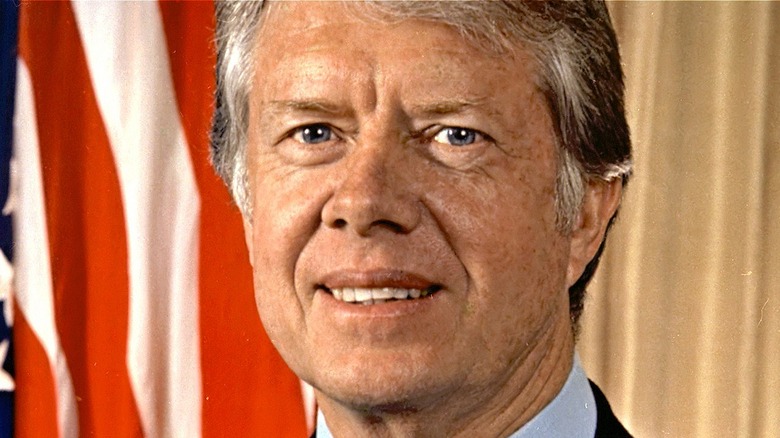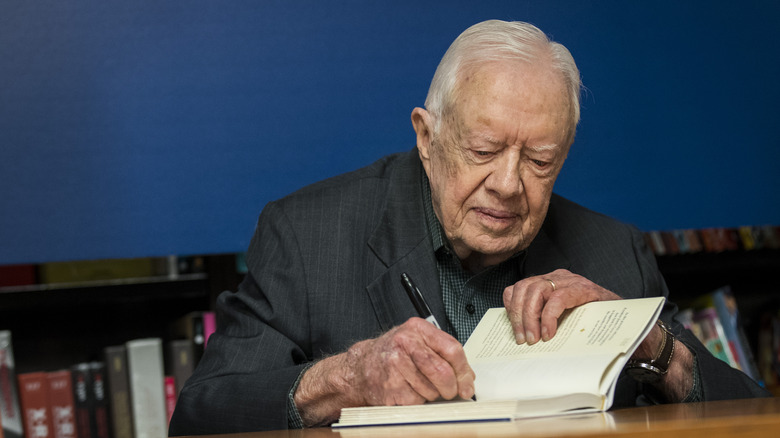Why President Jimmy Carter Gave Up His Peanut Farm
He might have served in Georgia's General Assembly for two terms, had a four-year stint as Georgia's governor, and spent seven years as a naval officer, but President Jimmy Carter was always known as a peanut farmer. This was thanks in large part to the role he took on following the death of his father James Earl Carter Sr, who owned a peanut farm in Plains, Georgia, per New Georgia Encyclopedia.
The former president's decision to enter the family business came didn't come without a personal cost. Carter had to give up a promising career in the navy, where he had tasks that included teaching nuclear engineering to the crew of a new submarine, in order to take on the failing operation in 1953. The situation was dire at times. In 1954, a year after Carter stepped into his father's shoes, drought hit the area, and the farm made just $187 in net profits, per the University of Virginia's Miller Center. It would take as long as five years for the peanut farm to become successful.
Ironically, Carter's decision to run to the farm arguably led to his political career. Once the farm became successful, he began serving on the boards of local libraries and hospitals. He also signed on to teach Sunday school at Plains Baptist Church. However, it turned out that entering the White House would lead to him exiting his peanut business.
The Carter peanut farm was a victim of bad management
When Jimmy Carter became president in 1977, the peanut farm had become Carter Farms, in which the former president had a controlling stake, It had between 2,000 and 3,000 acres of land, as well as the Carter Peanut Warehouse, which had a peanut shelling facility and a warehouse area, per The Washington Post. As president, Carter sold all his personal stocks, and he put his interest in Carter Warehouse and Carter Farms into a blind trust.
Carter said the move was meant to guarantee that "whatever happens here in Plains, based on my decisions concerning agriculture, will not affect my income one way or the other," The New York Times reported in 1977. The farm's management was then left to his brother Billy. A number of factors, including Billy's management decisions, negatively impacted the business. By the time Jimmy Carter finished his presidential term in 1981, the peanut operation had a debt of $1 million. As former First Lady Rosalynn Carter told The Washington Post years later, "We thought we were going to lose everything."
The ex-president, who was 56 at the time, reinvented himself once again. He decided to make money from writing books and lived on a yearly presidential pension of $210,700. He also returned to the home that he lived in before he occupied the White House. An agricultural processing company in Illinois eventually purchased Carter's peanut warehouse for $1.2 million, according to UPI.

